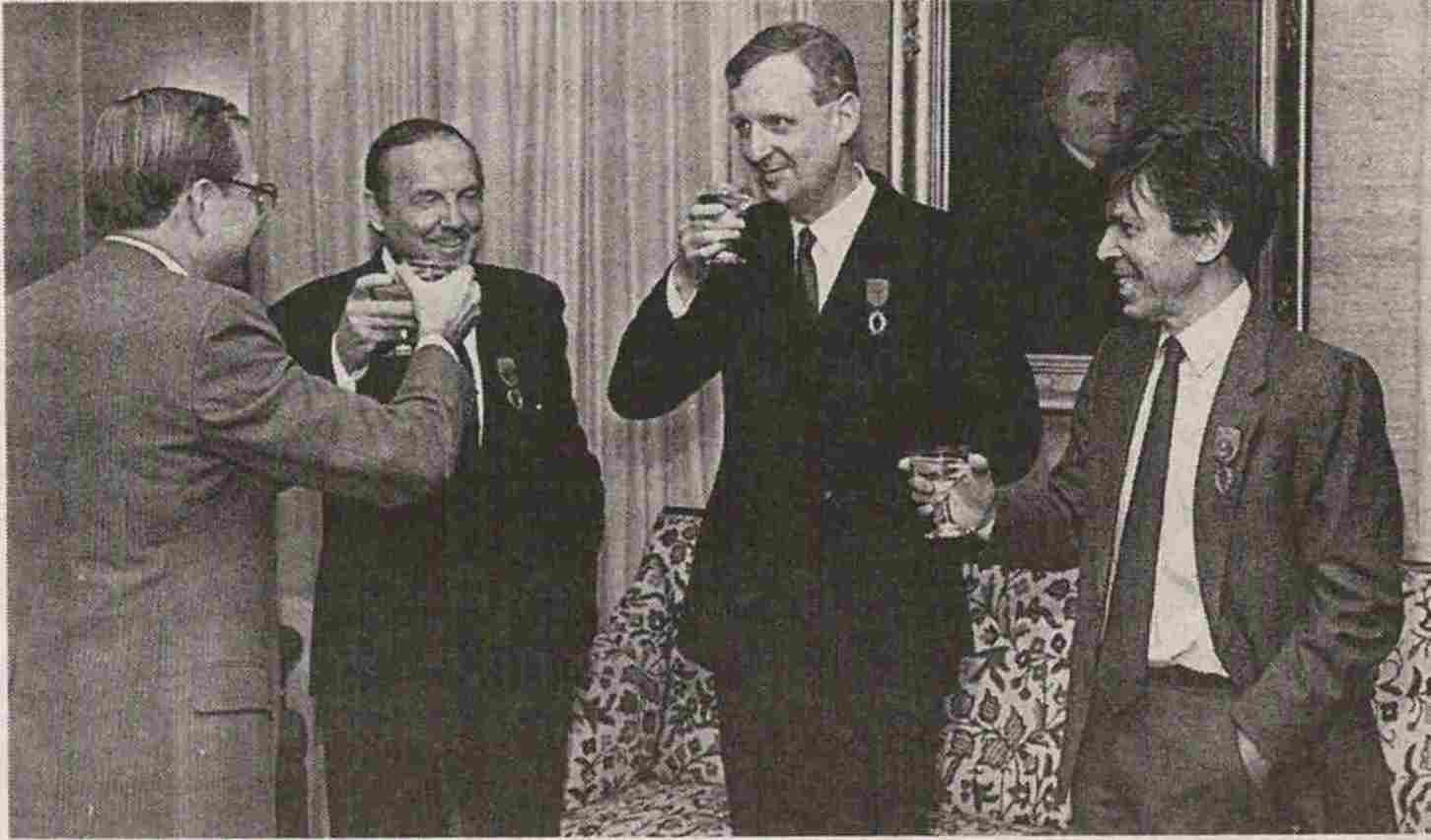Award of Palmes académiques. Left to Right: Professor François Rigolot, Chair, Jacques Soppesla, attaché culturel at the French embassy, Professor Thomas Pavel, and Professor Lionel Gossman.
Born and raised in Glasgow, Scotland, Lionel Gossman, M. Taylor Pyne Professor Emeritus of Romance Languages at Princeton University, graduated with an M.A. (Hons.) in French and German from the University of Glasgow in 1951, earned a Diplôme d’études supérieures at the University of Paris, with a thesis, directed by Jean Frappier, on “L’Idée de l’Âge d’Or dans le Roman de la Rose,” and, thanks to a Faulds Fellowship from the University of Glasgow, entered Oxford’s first exclusively graduate college, the newly founded St. Antony’s, in 1954. His D.Phil. dissertation, directed by Jean Seznec, was on the pioneering eighteenth-century medievalist Jean-Baptiste de La Curne de Sainte-Palaye. It turned out to be the first of many subsequent inquiries into the nature of historical research and writing and the conditions in which it is pursued. On (then still obligatory) National Service in Britain in 1952-54, Gossman had had the good fortune to study Russian intensively at the Joint Services School for Languages, gaining a First-Class certificate as a simultaneous interpreter from Russian to English and English to Russian. This Cold War training stood him in good stead some years later when, in an effort to understand what the French stucturalists were up to in the 1960s, he was able to read the far more lucid writings of the Russian formalists, to whom the structuralists were greatly indebted.
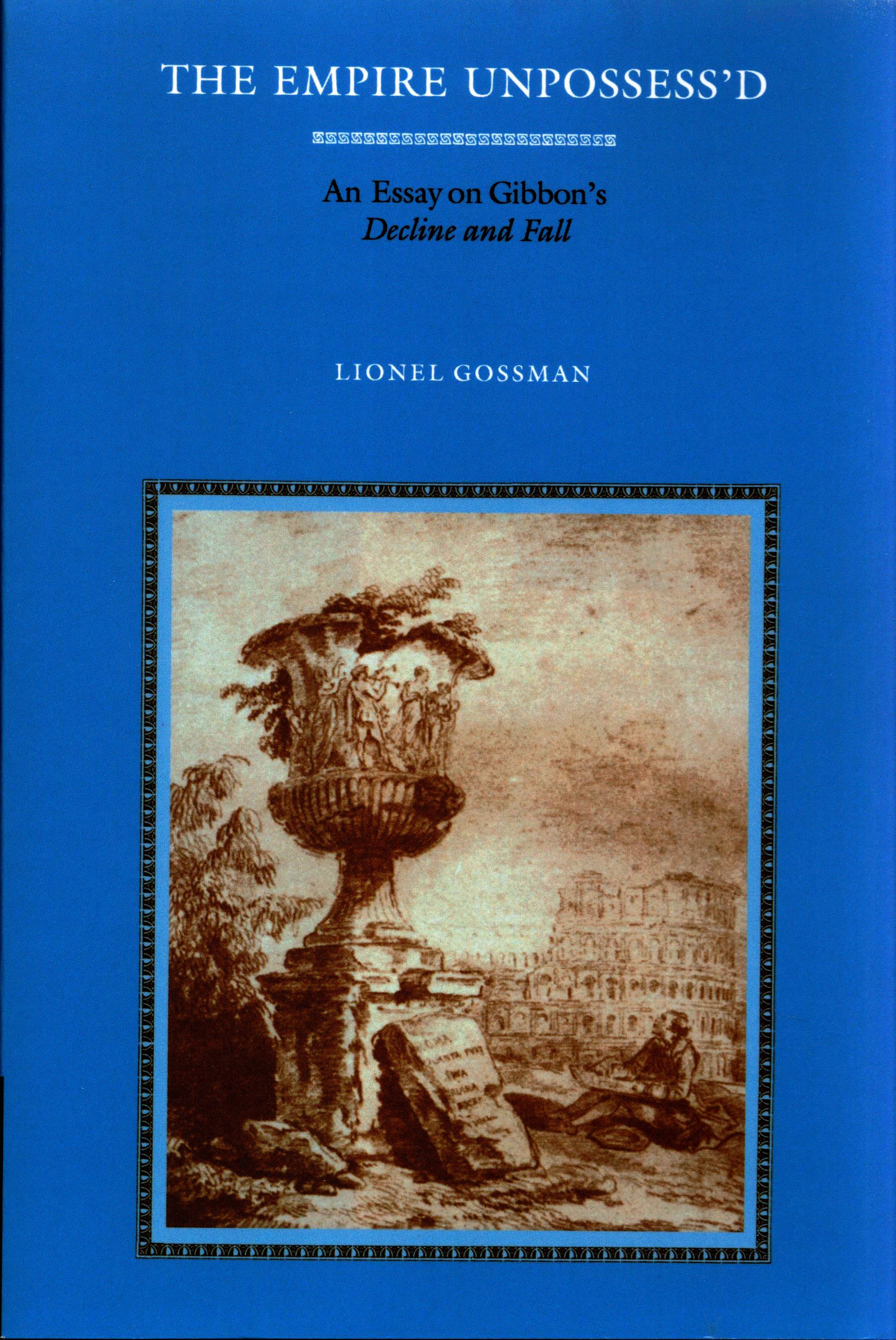
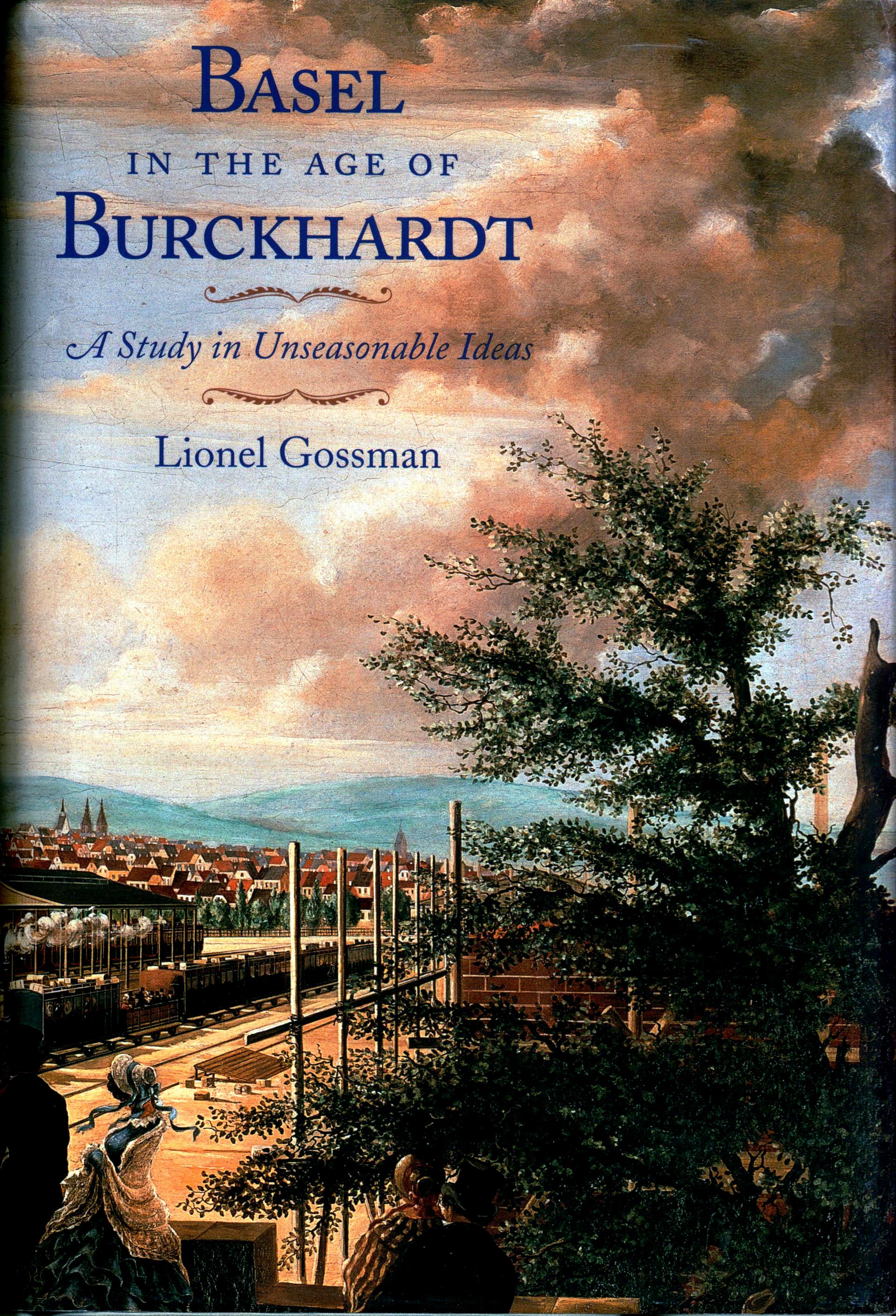
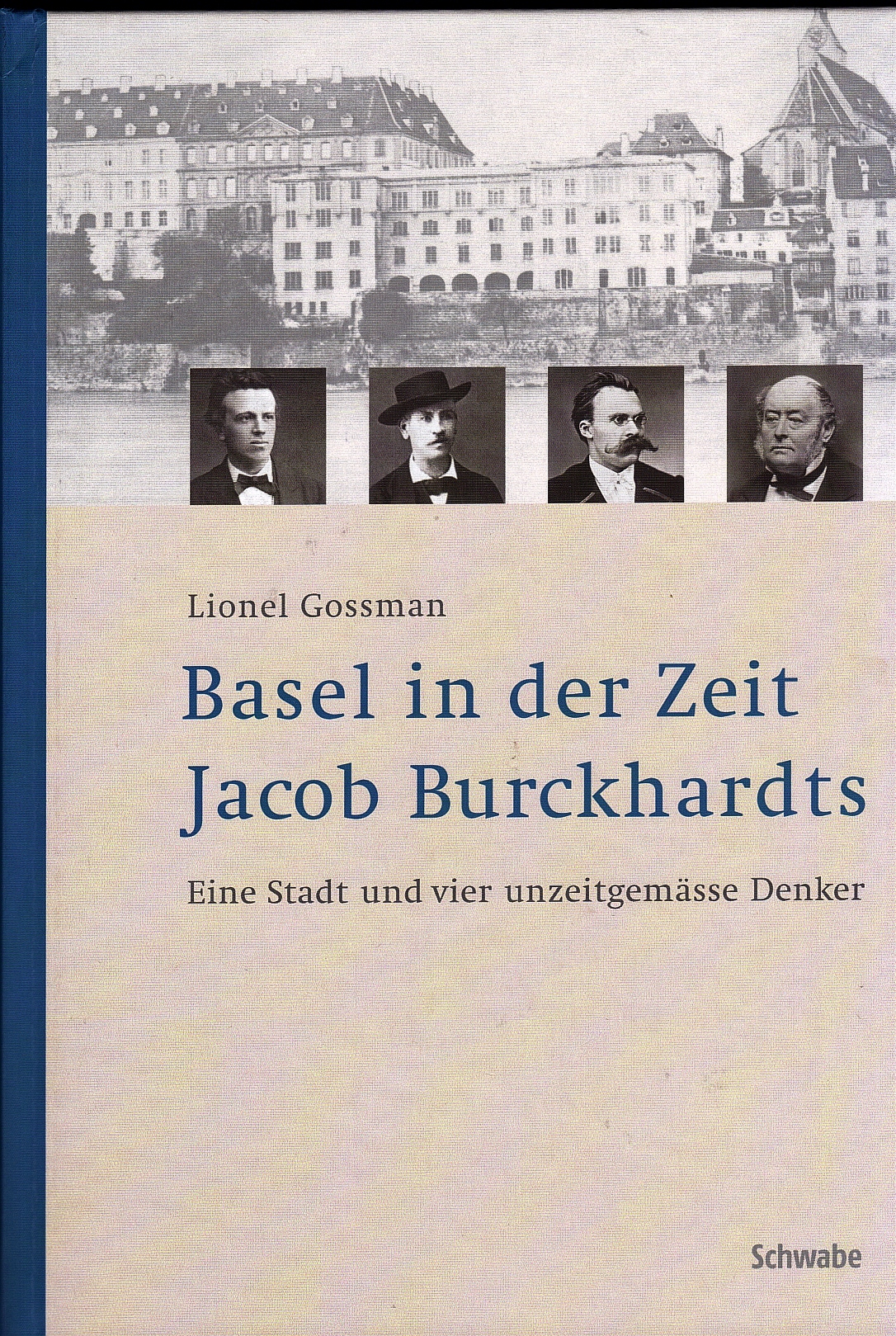

After short stints of teaching as an assistant d’anglais at the University of Lille and as an Assistant Lecturer (i.e. Assistant Professor) at the University of Glasgow (1957-58), Gossman came to the U.S. in 1958 to join the Romance Languages Department at the Johns Hopkins University in Baltimore. It was a time of enormous intellectual ferment, much of it the work of French thinkers and writers and most of it concentrated in those early years, as far as the U.S. was concerned, at Johns Hopkins. As phenomenology, Marxism, and existentialism were challenged by structuralism and structuralism in turn by “post-structuralism," teachers in the French section of the Romance Languages Department at Hopkins found themselves in the role of mediators between their colleagues in the other disciplines and the French maîtres penseurs who taught regularly in the department.
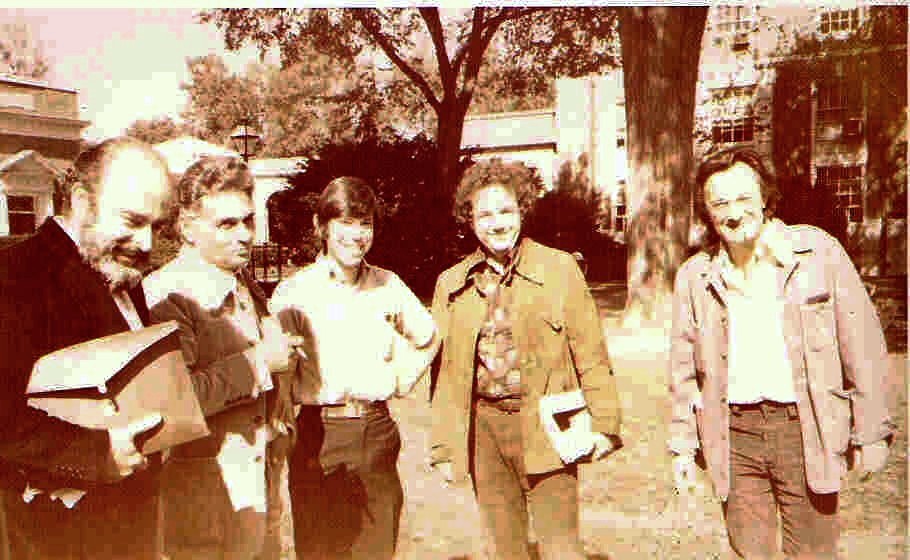
Lionel Gossman, Louis Marin, Jacques Derrida, Weber, Jean-François Lyotard
Curious physicists and puzzled English professors looked respectfully to the French faculty to provide explanations of the latest trends. French in those years was an extraordinarily lively discipline at the very center of the Humanities. Gossman had the good fortune to have as colleagues and friends René Girard, who became department chair, and the luminaries Girard brought over as visiting professors from France: Roland Barthes, Jacques Derrida, Lucien Goldmann, Jean-François Lyotard, Michel Serres, and Louis Marin who joined the permanent faculty. It was impossible not to be affected by the intellectual stimulation brought by these original minds, but Gossman resisted the temptation to become an epigone of one or another of them. His teaching there and subsequently at Princeton University, where he joined the faculty in 1976, continued to be focused mainly on French literature and culture of the seventeenth and eighteenth centuries.

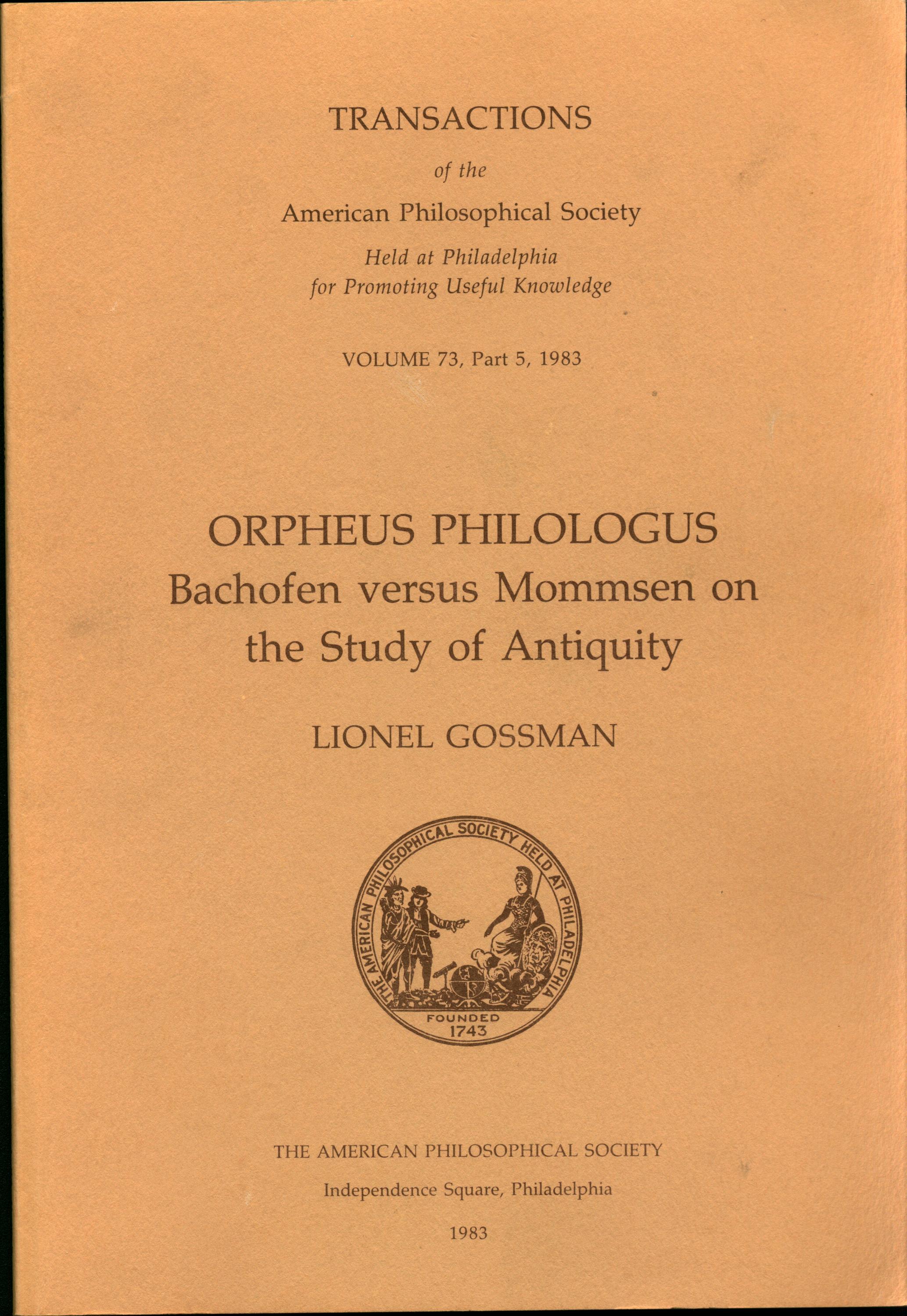

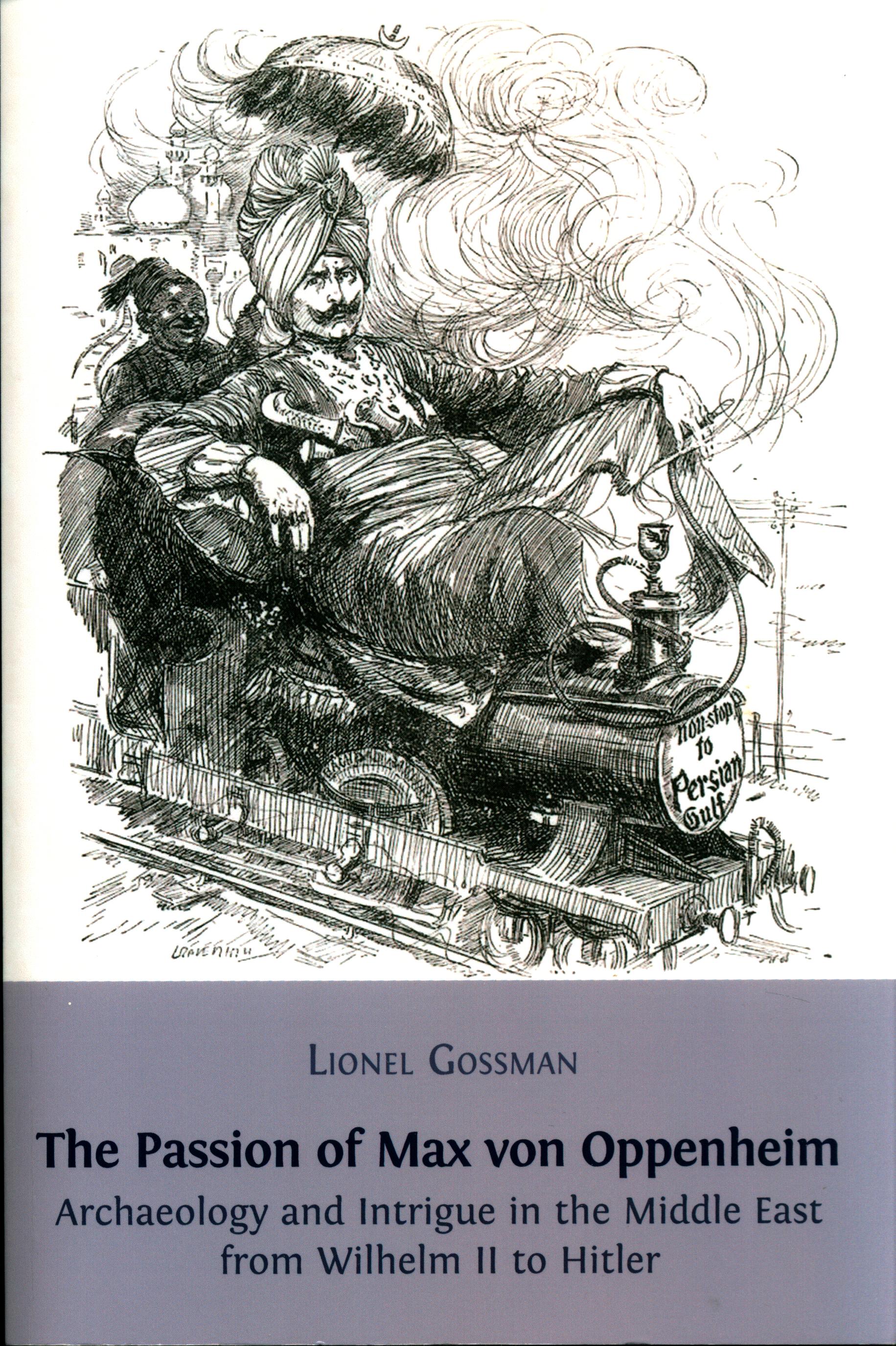
In 1976, after joining the Romance Languages department at Princeton, he was also able to co-teach with colleagues from other departments – a course on the Enlightenment in France and Germany, for instance, with a young colleague (and former undergraduate student) in the German department and, with historian Carl Schorske, a seminar on the City-State of Basel in the nineteenth century. Much of Gossman’s teaching, like his research and writing, was in fact devoted to questions of historiography in the modern period, from the seventeenth century to the twentieth. He also lectured on historiographical topics at colleges and universities in the U.S., Britain, Canada, Israel, Italy, the Netherlands, Spain, and Switzerland. Starting out from a position close to that of his friend and contemporary Haydn White (history as a form of literary narrative), he soon moved towards a conception, much influenced by the work of Stephen Toulmin and Chaim Perelman, of history as argument, certainly influenced by ideology, but at the same time subject to criticism based on evidence and generally accepted processes of reasoning and thus to re-evaluation by the scholarly community. In 1974 he organized an international symposium at Johns Hopkins to mark the centenary of the death of the great nineteenth-century French historian Jules Michelet and, the following year, with Richard Macksey, a symposium on “Semiotics and the Arts” as the Humanities departments’ contribution to the hundredth anniversary of the founding of the Johns Hopkins University. At Princeton, in 1994, with Natalie Z. Davis, he organized an international colloquium on “Varieties of Anti-Modernism” and three years later, in collaboration with Peter Paret of the Institute for Advanced Study and Donald Kelley of Rutgers, the American part of a Symposium, held in Basel and in Princeton, and attended in both places by historians and art historians from many countries, to mark the 100th anniversary of the death of the great Swiss historian Jacob Burckhardt. In 1984 he was seminar director at the Folger and Newberry Libraries in Washington D.C. and Chicago and in 1991 visiting professor at the University of Pennsylvania.
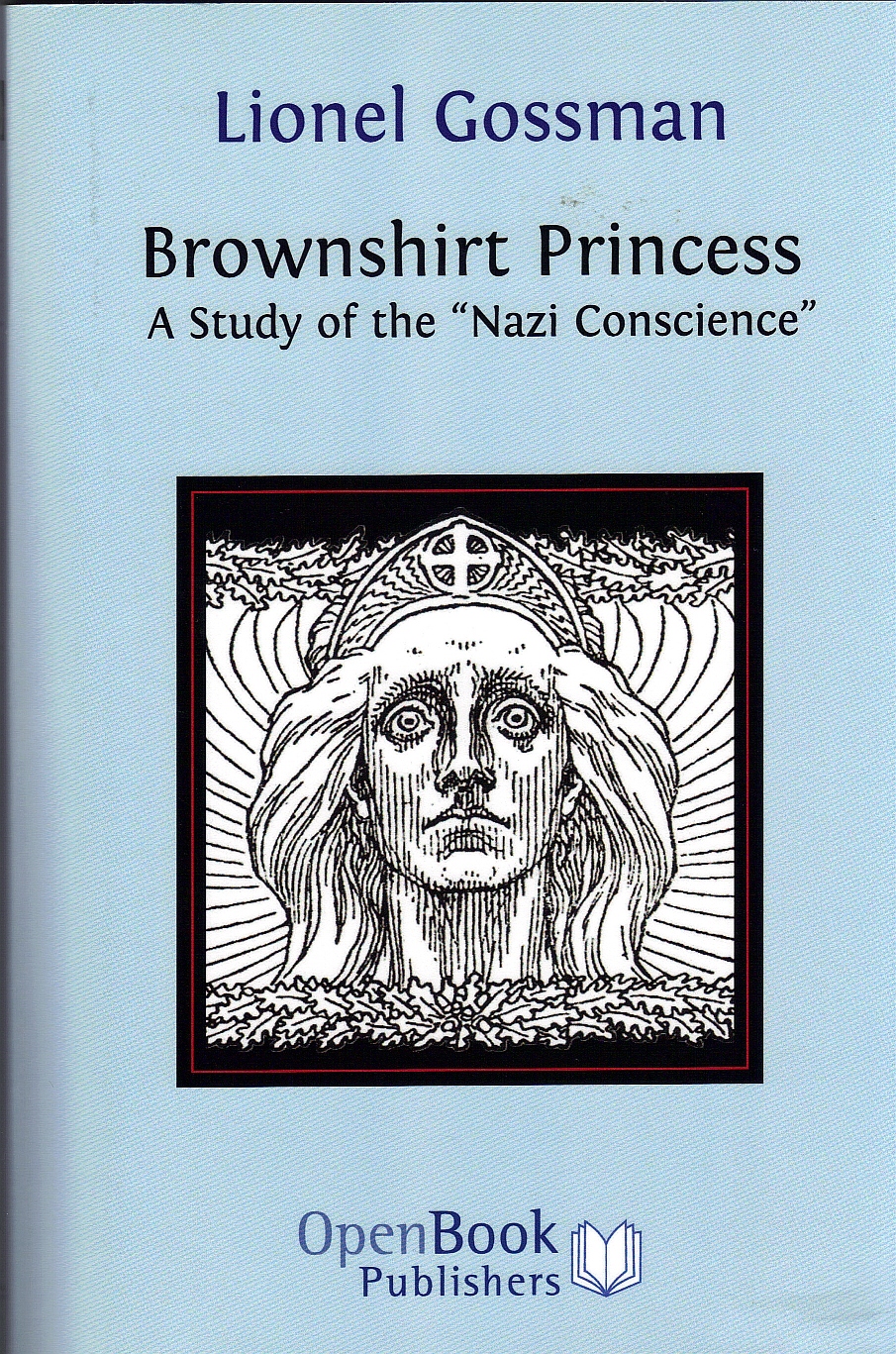

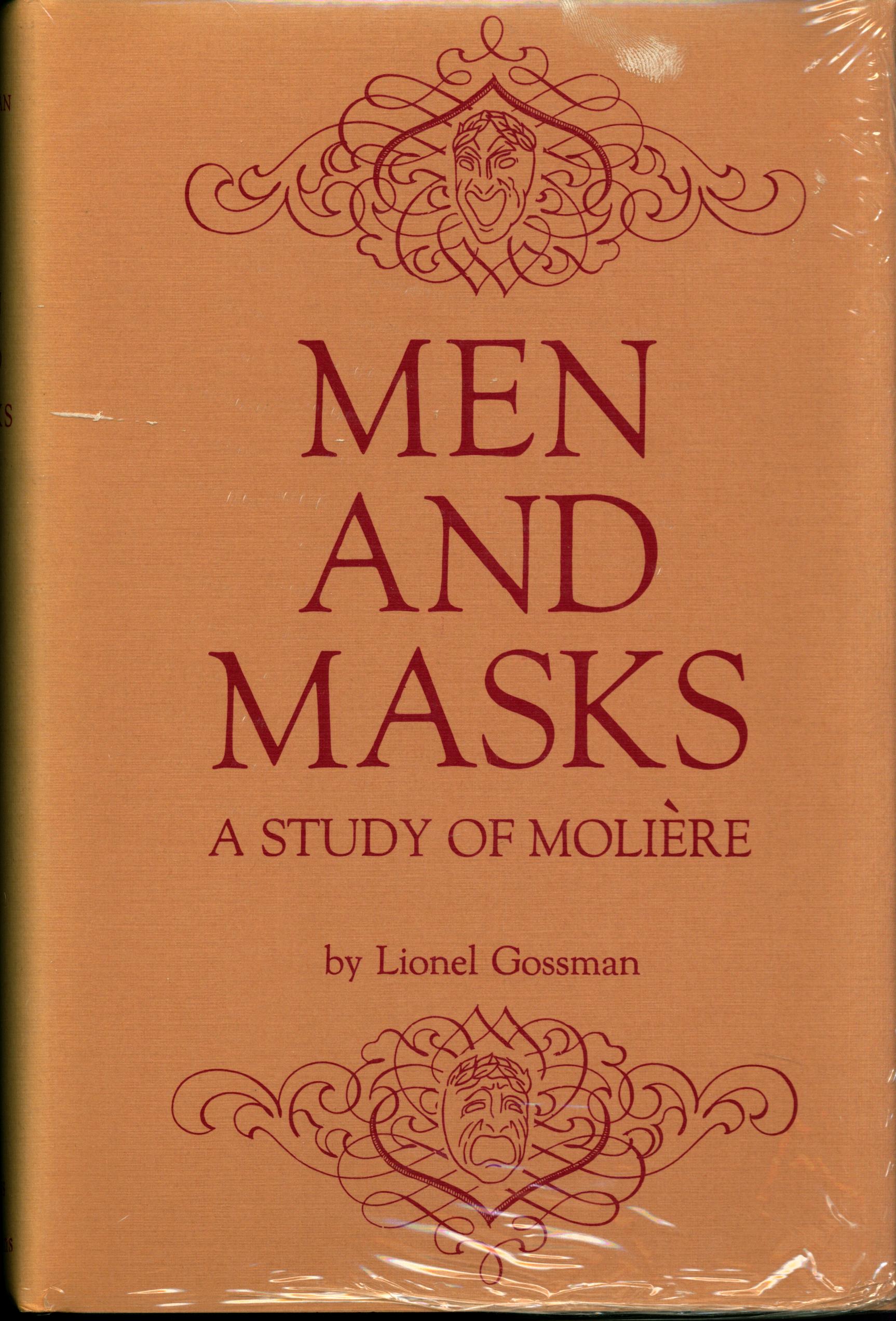
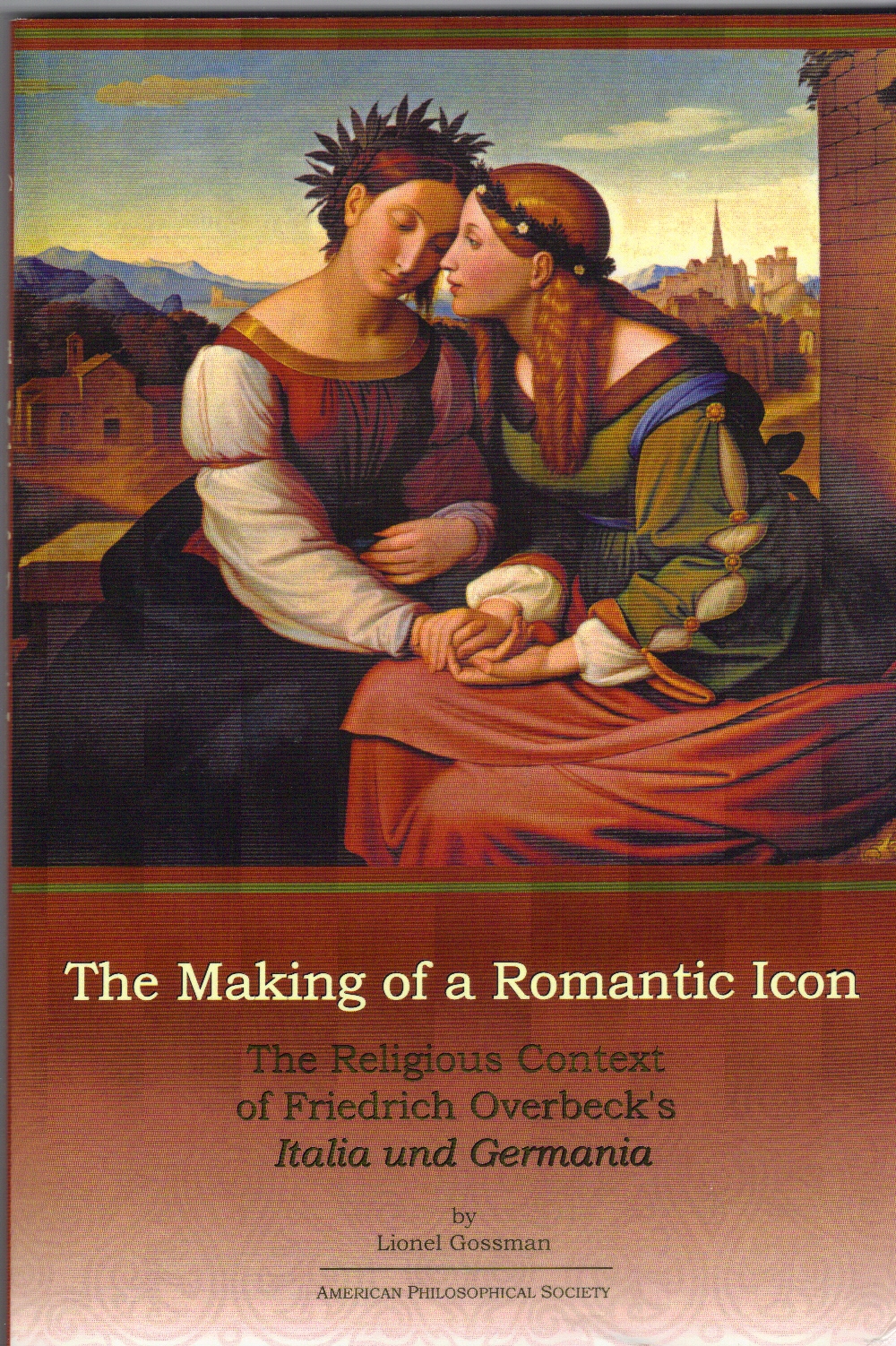
Gossman has been chair of his department at both Johns Hopkins and Princeton; he has been elected or appointed to many important university committees; and he served on the selection committee for the Ford Foundation’s Doctoral Fellowship Program for Black Students, the European Selection Committee for the Social Science Research Council, the editions and translations panels of the National Endowment for the Humanities, the committees on publications and summer grants of the American Philosophical Society, and the editorial boards of the Johns Hopkins University Press, the Princeton University Press, and the journals Modern Language Notes, Clio, Comparative Literature, French Forum, and Eighteenth Century Studies. He has been an ACLS fellow and was twice the recipient of an NEH Fellowship. From 1991 until 1999 he was on the Visiting Committee for the Department of Romance Languages at Harvard and from 1994 until 1999 acted as its chair.
In 1990, he received the Behrman award for Distinguished Service in the Humanities from Princeton University; in 1991, he was made an Officier des Palmes Académiques by the French Government; in 1996, he was elected to the American Philosophical Society; and in 2005, six years after his retirement, he was awarded an Honorary degree of Doctor of Humanities by Princeton University.
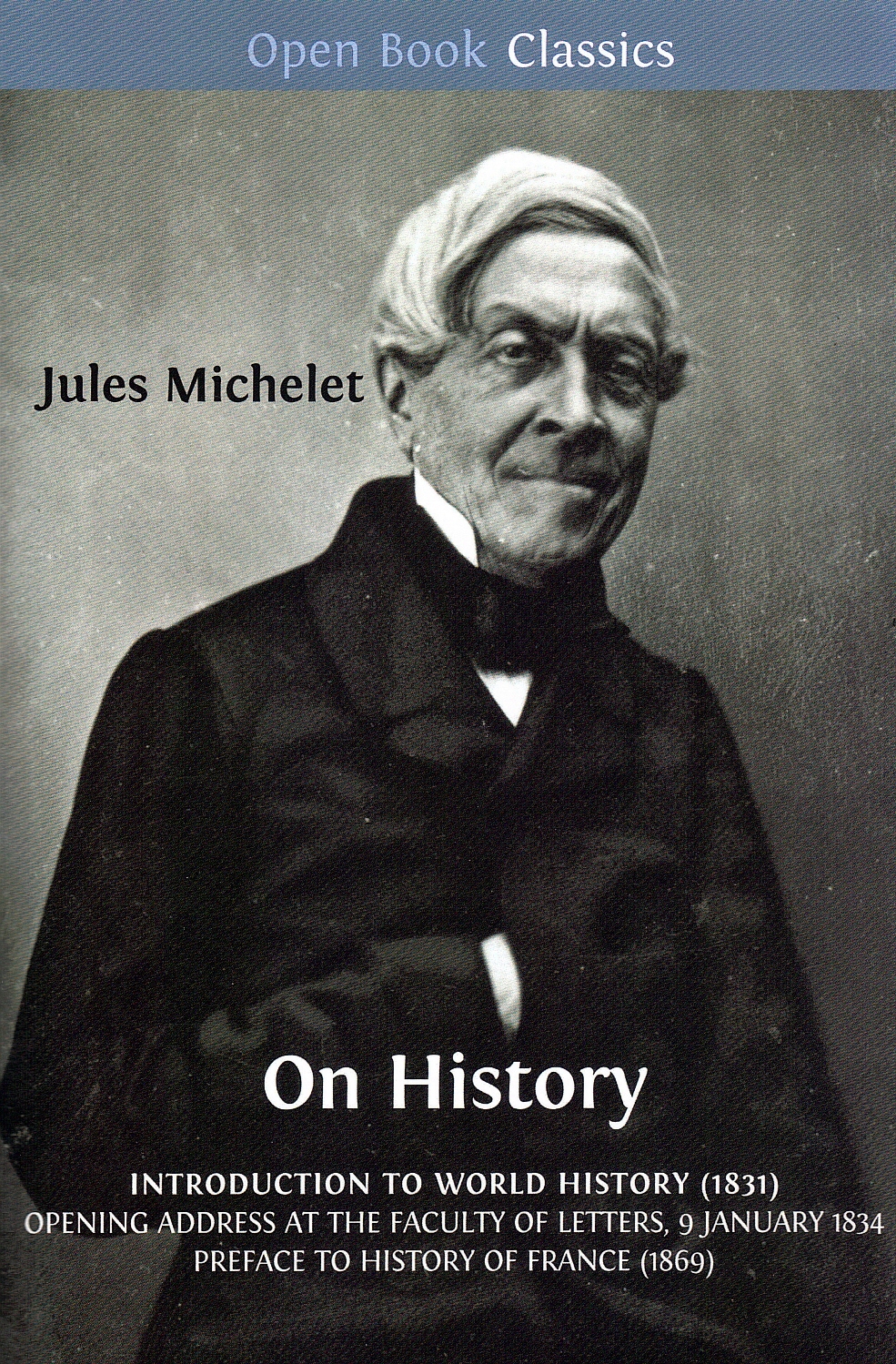
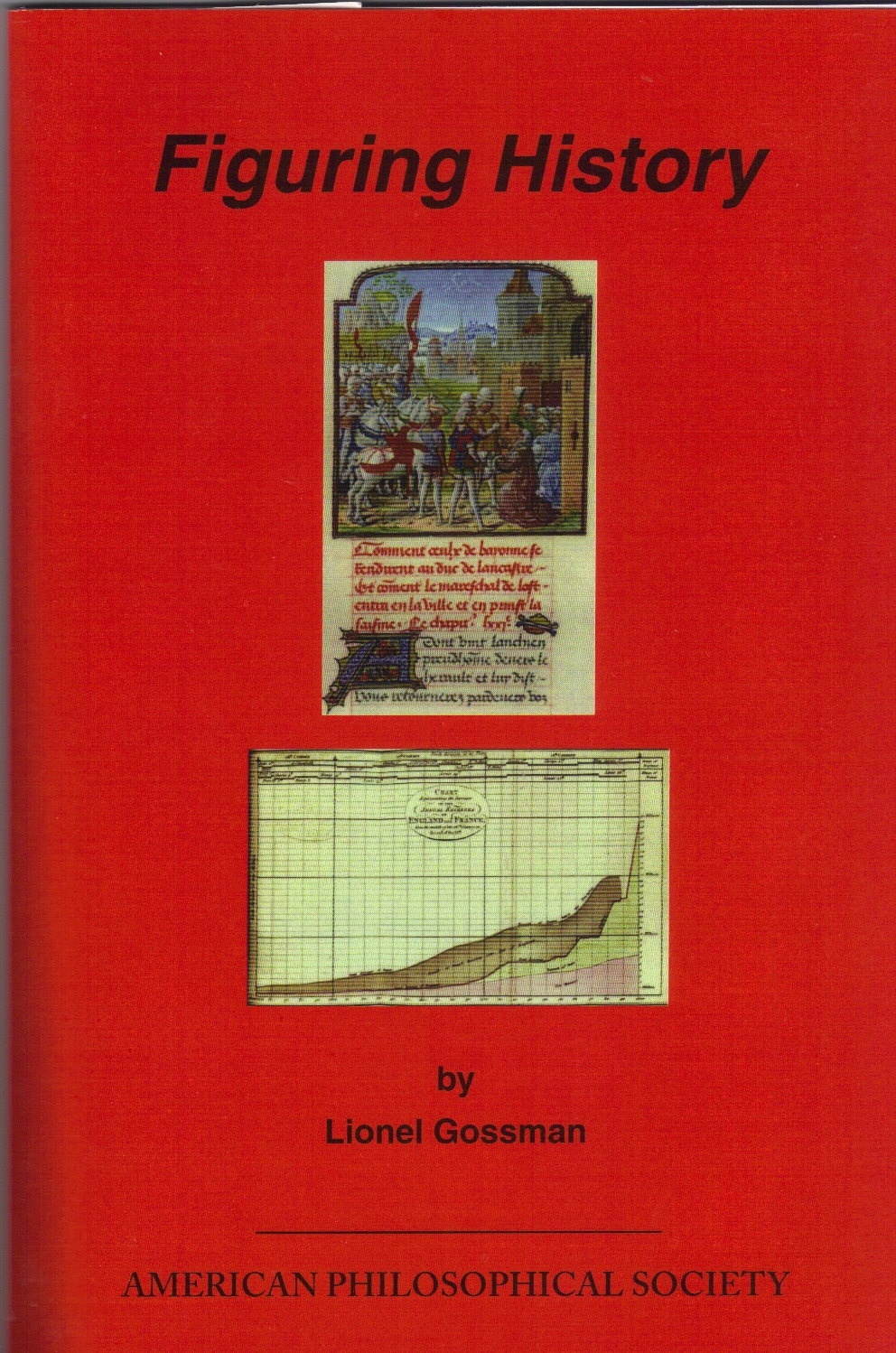


Since his retirement in 1999, Gossman has allowed his curiosity to lead him in new directions, notably recent German and German-Jewish history (Brownshirt Princess; The Passion of Max von Oppenheim: Archaeology and Intrigue in the Near East from Wilhelm II to Hitler), art history (The Making of a Romantic Icon: Friedrich Overbeck’s “Italia und Germania”; Figuring History; Thomas Annan of Glasgow: Pioneer of the Documentary Photograph) and, women’s studies (Hermynia Zur Mühlen’s The End and the Beginning), while at the same time maintaining his old interest in historiography and French literature (Jules Michelet: On History; Fortunes and Misfortunes of a Moderate: André Maurois 1885-1967). He has also become a committed advocate of open access publication of works of scholarship and has published five books with Openbookpublishers.com of Cambridge, England.
Gossman’s main book-length publications
Men and Masks: A Study of Molière (Baltimore: The Johns Hopkins University Press, 1963). Paperback ed.,1969.
Chapters or extracts reprinted in Molière: A Collection of Critical Essays, ed. Jacques Guicharnaud (Englewood Cliffs: Prentice Hall, 1964); in Wege der Forschung: Molière, ed. R. Baader (Darmstadt: Wissenschaftliche Buchgesellschaft, 1980); in Bedford Introduction to Drama, ed. Lee A. Jacobus (Boston: Bedford Books of St. Martin’s Press, 1993), and in Bloom’s Major Dramatists, ed. Harold Bloom (Philadelphia: Chelsea House, 2003).
Medievalism and the Ideologies of the Enlightenment: The World and Work of La Curne de Sainte Palaye (Baltimore: The Johns Hopkins University Press, 1968).
French Society and Culture: Background to Eighteenth Century Literature (Englewood Cliffs: Prentice Hall, 1973).
Augustin Thierry and Liberal Historiography. (Middletown, CT: Wesleyan University Press, 1976).
The Empire Unpossess'd: An Essay on Gibbon's Decline and Fall (New York: Cambridge University Press, 1981). New edition, 2009.
Orpheus Philologus: Bachofen versus Mommsen on the Study of Antiquity (Philadelphia: American Philosophical Society, 1983).
Toward a Rational Historiography (Philadelphia: American Philosophical Society, 1989).
Between History and Literature (Cambridge, Mass.: Harvard University Press, 1990).
Geneva-Zurich-Basel: History, Culture, and National Identity, with Nicolas Bouvier and Gordon Craig, ed. L. Gossman (Princeton: Princeton University Press, 1994).
Building a Profession: Autobiographical Reflections on the History of Comparative Literature in the United States, edited with Mihai Spariosu (Albany: State University of New York Press, 1994).
Basel in the Age of Burckhardt (Chicago: University of Chicago Press, 2000).
Awarded George L. Mosse Prize for modern cultural history by American Historical Association, January 2002. German transl. Basel in der Zeit Jacob Burckhardts: Eine Stadt und vier unzeitgemässe Denker (Basel: Schwabe, 2006)
Begegnungen mit Jacob Burckhardt/ Encounters with Jacob Burckhardt:Vorträge in Basel und Princeton zum hundertsten Todestag, edited with Andreas Cesana (Basel: Schwabe; Munich: C.H. Beck, 2004).
The Making of a Romantic Icon: The Religious Context of Friedrich Overbeck’s “Italia und Germania” (Philadelphia: American Philosophical Society, 2007). Winner of John Frederick Lewis Award for 2007.
Brownshirt Princess. A Study of the “Nazi Conscience” (Cambridge, Eng.: Openbookpublishers, 2009)
The End and the Beginning: The Book of My Life, by Hermynia Zur Mühlen, translated, with notes and an essay by Lionel Gossman. (Cambridge, Eng.: Openbookpublishers, 2010)
Figuring History (Philadelphia: American Philosophical Society, 2011).
The Passion of Max von Oppenheim: Archaeology and Intrigue in the Middle East from Wilhelm II to Hitler (Cambridge, Eng.: Openbookpublishers, 2013)
Jules Michelet on History (“Introduction to World History” [1831], “Opening Address at the Faculty of Letters, 9 January 1834,” “Preface to the History of France” [1869], translated by Flora Kimmich, Lionel Gossman, Edward K. Kaplan), ed. Lionel Gossman (Cambridge, Eng.: Openbookpublishers, 2014) htt
André Maurois (1885-1967):Fortunes and Misfortunes of a Moderate (New York: Palgrave Macmillan, 2014))
Thomas Annan of Glasgow: Pioneer of the Documentary Photograph (Cambridge, Eng.: Openbookpublishers, 2015)
Last modified 29 September 2016
